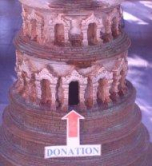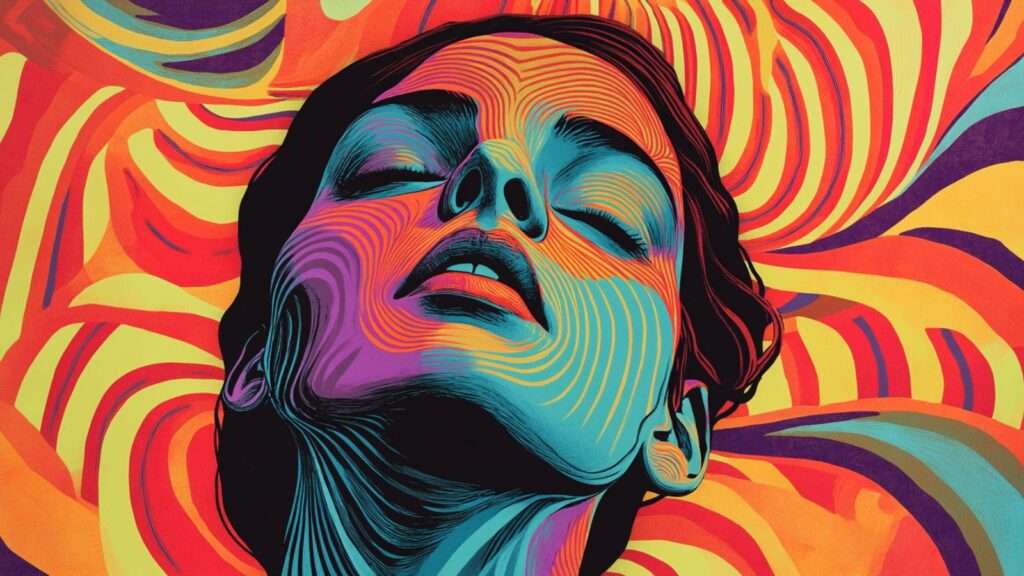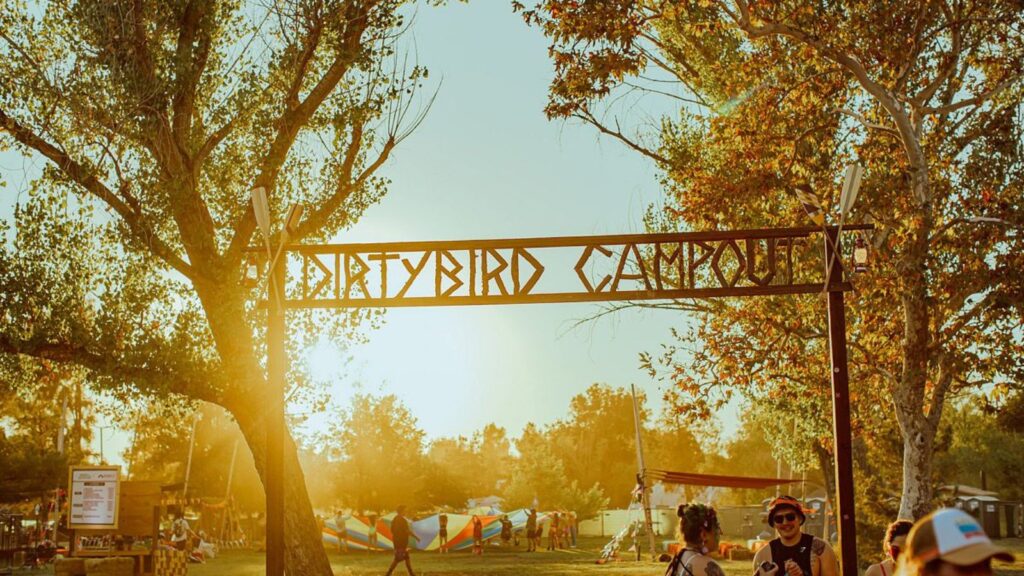This essay is part four in a five-part series accounting the author's stay in a monastery in Thailand. Click here for parts one, two, and three. An abridged version previously appeared in The Sun.
[Pilgrimage to Nowhere] •
“What is this?” asked
the Tallest Monk in Thailand, making a fist and hitting himself on the head. It
was mid-morning in the lower meditation hall and I was flustered.
“Uh…”
“When you get Vipassana, it is like that, ‘Boom!'”
Let’s review: Vipassana was good for business, a refuge for
drug-addicted youth, a home away from home for Canadian punk rockers, and now
like punching yourself in the face.
“The cat that thinks about getting the rat," he continued,
looking at me very purposefully, "will not get the rat. The cat that gets
the rat will get the rat.”
It was one of those Buddhist statements that seemed
self-evidently wise, but very hard to operationalize. Thank you, I nodded. He asked to see my walking meditation, then
corrected several movements I'd evidently been doing wrong.
"It," he said, making a gesture that included both my
left and right foot, "is one thing.” He held my gaze. Evidently my
ambivalence towards non-dualism had been making the rounds and the Sangha was alarmed. I could imagine the memo that had gone out: Begin with gentle metaphors of cats
devouring rats, but if that doesn't work…
“You must know it.”
“How must I know
it?" I asked. "In my head? In my heart?”
“It begins in heart, your heart tells the brain, the brain…"
"Yes?"
"My English not good.”
“Yes, your English good." For some reason I too was dropping
out verb forms.
“My experience good. My English no good."
And that was as much as he would say.
I brought up the cat and
the rat at my reporting session with Phra Sam later that day. As usual he'd
begun the session asking me how my practice was going. Some progress, I told
him. I also told him how I'd noticed I was holding tension in my stomach. Just
be sitting…sitting when you're
sitting, he advised. He wanted to know if I was having any problems with my
posture or walking. I wanted to know whether lovingkindess led to liberation
from suffering or the other way around. He wanted to know if I was seeing any
lights or colors. I wanted to know why Doi Suthep was situated on such a
beautiful spot if we weren't supposed to be judging some things as beautiful
and others as ugly. He wanted to know, once again, if the left foot and right
foot were separate or One. That's when I mentioned the cat and the rat. That's
also when I brought up Zen and the Art of
Motorcycle Maintenance, Alan Watts, and Eugene Herrigal's description of
"the arrow releasing itself." That's when he said, "You think
too much." That's also when he told me he hadn't read any of those
authors. It occurred to me that Tomas might be right about Sam. Which is when
he told me to do 30 minutes walking, 30 minutes sitting. I bowed three times to
the Buddha, three times to Phra Sam, and exited.
I detested bowing down to Phra Sam. Ever since I arrived at Doi
Suthep, I'd been bowing down to something or someone: to the abbot at the
ceremony the day before, to the Buddha during prostrations, to Phra Sam at
every reporting session. I didn't bow out of respect; it was more like pretending
to be nice to the boss. Each time I was swallowing my pride. I'm a rebel,
skeptic and a free-thinker. As a matter of principle I don't pray, I don't bow,
I don't kneel, and I try not to submit to anyone or anything I don't respect or
admire — especially someone who expects it of me just because of the robes they
wear or their position in a religious or political hierarchy. Revolutions had
been fought, people burned at the stake, millions of lives sacrificed in wars
and social upheavals, for exactly my right to not do that. And every time I had to do it at Doi Suthep it left a
bad taste; my growing doubts about Phra Sam only made the taste worse.
I was feeling increasingly adrift and teacherless. The abbot I
didn't know. Sam I knew, but didn't trust. I had gone looking for Roger, the
philosopher, that morning, but hadn't found him. Ajaan Tong was just a name
haloed in reverence — righteous or misplaced, I didn't know. Doi Suthep, the
institution, was still a mystery to me in many ways. And I was still at odds
with Buddhism on some crucial philosophical matters — which Sam was doing
nothing to help me sort out. My vows were shaky; my own practice was fraught. I
was beset with doubts, and these doubts were beginning to hurt my practice.
According to my meditation guide, doubt was one of the seven
great obstacles to self-realization, and would often manifest as "doubting
the correctness of our own practice" and "wondering about the
competence of our meditation teacher and whether he or she really understands
us." I was, it seemed, a textbook doubter. As such, I had to wonder to
what degree was I seeking scapegoats for my own difficulties?
The paradox, of course, was that Buddhism itself encourages
doubt. "Great doubt, great faith, and great determination," were the
three pillars of Buddhist practice, famously described by 16th century Zen
master Torei Enji Zenji. In Buddhism, as I understood it, you were ultimately
responsible for your own liberation; your own experience was your truest guide.
The Buddha himself had counseled his followers to "Believe nothing, no
matter where you read it, or who said it, no matter if I have said it, unless
it agrees with your own reason and your own common sense." So, there I
was: teacherless, profoundly on my own, doubting even my own doubts, open to
anything. Open even to Smiling Tomas when he tapped me on the knee later that
afternoon, whispering, "I want to teach you an ancient yogic breathing
technique that came to me."
"Um, O-kaaay," I whispered back, a little shocked that
he had interrupted me in the middle of my sitting practice.
We were in the southern meditation hall, the irregular melody of
tourist-clanged bronze bells sounding from a distance. Pony-Tailed Terri had
been walking widthwise across the room in slow footfalls, but now, with a
meditation pillow tucked under her arm, she was leaving. I watched her go,
hoping it wasn't our whispering that had made her leave. Tomas and I turned to
face each other.
"Where did you learn this?" I asked.
"It came to me," he said as if that was the most
natural thing in the world, and then proceeded to whisper his entire back-story
into my left ear. How back in Minnesota
he'd been a 13-year-old stoner introvert, but how one day, sitting in his
candle-lit pre-teen bedroom, drumming on his bongos, he'd had an Intuition. He
put down his bongos, blew out the candle and just sat there in the dark.
Meditating. For hours. And everything changed.
"I went from a C student to an A student, from a super shy
guy to Mr. Popular." Again, the powers of Buddhism were remarkable. Not
only could it save you from a wayward life of drink, it could make you Big Man
on Campus.
"You started to meditate, just like that?"
"Yeah, then I read a lot of books. I'm totally self-taught.
I'm always trying stuff out." We continued whispering about his very
cafeteria-style mix of yoga and Buddhism and Osho and being stoned. "I
used to meditate stoned a lot," he said.
"So why Buddhism, why Vipassana?"
"There are many paths up the mountain, and you can mix and
match your camping gear" — as well as your metaphors, it seemed —
"but to get up there you've got to choose one path."
There was a noise at the doorway. Tomas and I sat suddenly still,
but it was Hannes who peered through the curtain, not Sam. Smiling Tomas
beckoned him over. "Here, let's gather in a three-way power circle,"
he whispered. Hannes raised his eyebrows at me. I shrugged. Soon enough, and
not unlike a set of mismatched camping gear, the three of us were sitting in
meditation posture facing each other in a circle, talking sotto voce.
"You know," I said, "I'm not sure this is what the
abbot had in mind when he said, 'Practice as befits you.'"
"We can only hope," offered Hannes.
"And who was he on the phone with yesterday?" I wanted
to know.
"Actually," whispered Tomas, "that 'phone' is
connected to a whole network of monasteries in Northern Thailand."
"How so?"
"Everything the abbot said to us yesterday was broadcast
onto the P.A. systems of over 500 monasteries."
"Serious?"
"In real time."
"Wait," whispered Hannes, "he wasn't on the phone
with Buddha?"
"That abbot has been here for 40 or 50 years,"
continued Tomas. Previously as a monk, now as abbot. The previous abbot was
arrested two years ago for embezzlement."
"Embezzlement?"
"Do you ever get the feeling we're in a Vipassana
thriller?"
"Doi Suthep is the third richest monastery in Thailand.
There's a lot of tourist and other money flowing into this place."
"The plot thickens."
"Money…"
"Intrigue…"
"And embezzlement."
"And murder!"
"Murder?"
"Not yet, but — but — who knows." Hannes whispered this
last line looking around as if for someone hiding in the shadows. Ooo-wee-ooo. We all looked around in
mock paranoia.
Deciding that our
meditation "power circle" was too obvious a breach of discipline, we
pulled the three cushions to the edge of the wall, and sat there whispering out
the sides of our mouths as we pretended to meditate. This, of course, cracked
us up. How silly we must have looked, the three of us, nearly shoulder to
shoulder against the wall, the rest of the meditation room empty. Tomas
consulted his watch. "In any case," he said, "I think Phra Sam
will be busy chanting for the next half hour." It was all so junior high.
Whispering out the corner of his mouth, Tomas continued to
expound upon the benefits of meditation. He told us how, while still in high
school, he took a college-level writing class and how one morning he meditated
looking into a candle for four straight hours and then went into class and wrote
a book.
"A whole book?"
He also taught himself Spanish — fluently, he claimed — just
sitting in his room. In this same room, he taught himself how to play and
compose music — and promptly wrote two electronic symphonies.
"Um, how does this work exactly?" I asked.
"Whole domains of knowledge just come to me," he
explained. Smiling Tomas was either the nicest, sweetest, most Midwestern of
megalomaniacal sociopathic liars, or he was a new Buddha incarnate.
"Whole domains? Like what?"
"I can just see them. Meditating makes me confident, more
focused, sharper, more intuitive. If you meditate long and strong enough, new
ideas will come to you, too. I guarantee it."
"You know," I threw in, "if the monk thing doesn't
work out, you could write brochure copy for the Buddhist Chamber of
Commerce."
Smiling Tomas smiled.
"But you’re talking about more than that," suggested
Hannes.
"Yeah, like a whole body of knowledge was revealed to me a
few days ago — in only 20 minutes of deep, really deep meditation."
"Yeah, like what?"
"Like all of human thought."
"Wait, you're sure it was all of human thought?"
"Yeah. I tried to tell Phra Sam about it at reporting, but
he didn’t want to hear about it."
I was beginning to develop a little more sympathy for Phra Sam.
"He told me to shut up."
"He told you to shut up? He said ‘shut up.’?"
"Yeah. I wrote home about it."
"Home?"
"To my sister."
And he continued on with his stories. About the mystic Osho who
dictated a book a day to his followers. About his theories of natural genius
and the stages of enlightenment. About some unknown low-caste man in India
who went to the forest after his entire family was killed and without any
training taught himself to meditate and became enlightened. "And this just
shows you how — "
"Shhhhhh…," whispered Hannes. "I think someone's
at the door." Someone was at the
door, and in moments he'd be through the inner curtain. Get that mat! I shouted in a whisper. Don't laugh, don't laugh! Like school kids smoking behind the gym,
we scrambled madly to look innocent. The
cushion over there! Is it Phra Sam? Fix your robe! Shhhh! It wasn't Sam,
but when Silent Brother Tim stepped into the room — as grim faced and focused
as ever — it was only our collective guilt that kept the laughter bottled up. Not laughing…not laughing, I
faux-meditated to myself. Whether Brother Tim was on to us or not, he paid us
no mind, but simply proceeded with his walking meditation as if there were
nothing odd about three of his fellow students sitting shoulder to shoulder
along the same small stretch of wall. In the end, the joke was on us. Brother
Tim's dedication was uncompromised. I, on the other hand, felt shame, even as I
struggled to contain my laughter: the shame of someone squandering his good
fortune. I stood up and walked to the door.
Maybe, I thought, as I walked down the stairs and through the
garden, I've let my doubts run away with me. Maybe I've used my
anti-authoritarian impulses as a cover for my own laziness; my growing distrust
of Sam as cover for my own bad faith. Yes, Buddhism counsels doubt, but there
were two other legs in the great triangle. Where were my faith and
determination? I had agreed to conduct myself in a way befitting a member of
the Sangha. I was a guest of Doi
Suthep; I was a guest of Thailand and its culture, a culture in which
tradition, one's elders, and the robe commanded great respect — even when the
robe was worn by a white man with what seemed to be a shaky grasp of the
teachings. As a student of the dharma,
I should show this respect. Those were my thoughts as I walked through the
garden, and back to the other meditation hall. Back to sore knees and silence
and emptiness.













